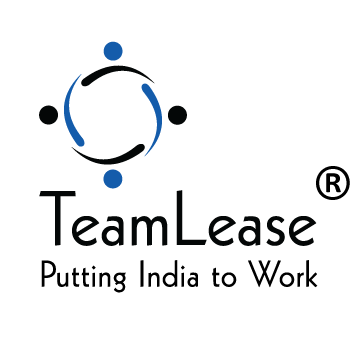Workforce Expansion Strategies: New Hiring and Replacement Plans

Navigating today’s fast-paced world of work requires a keen understanding of the ever-changing employment landscape. Businesses face critical decisions regarding their staffing strategies. As industries evolve, the demand for individuals with expertise in emerging technologies such as artificial intelligence, blockchain, and data science continues to grow.
While the IT industry may have experienced setbacks, other industries such as healthcare and pharmaceuticals, BFSI (Banking, Financial Services, and Insurance), and manufacturing are witnessing a significant surge in workforce expansion.
Balasubramanian A, VP & Business Head, TeamLease Services, said “The upcoming job landscape in consumer-centric sectors such as healthcare and pharmaceuticals, Electric Vehicles (EV), and Infrastructure and Fast-Moving Consumer Durables (FMCD) reflects commendable growth. This surge in job aspects is driven by a collective demand for innovation, sustainability, and advancements in technology.”
The financial services industry is on the cusp of an intriguing phase, a phenomenon unseen for several decades. Whether it be banks, fintech firms, or insurance companies, the optimism that resonated strongly last year has every reason to endure. “79% of employers are going for new hiring, and 70% for replacement hiring. Kolkata takes the lead in H2 for BFSI workforce expansion. The Human Resources function spearheads the incremental new hiring. The employment landscape is optimistic, with none falling below 65% in incremental new hiring across industries. Additionally, a substantial 85% incremental new hiring in blue-collar roles showcases the enduring value of hands-on operational roles,” said Krishnendu Chatterjee, VP and Business Head, TeamLease Services.
5 major forces shaping the job market today
Despite positive indicators of workforce expansion, several factors can potentially affect employment dynamics. These include:
- Economic conditions: A large proportion of the respondents (69%) believe that economic conditions affect the employment environment majorly. While the overall economic growth rate of the country is the major concern, employment opportunities also depend on factors like inflation, recession, and global economic trends.
- Business growth or expansion is considered as another major factor by the respondents (53%). With the government and private sectors encouraging entrepreneurship, India should see a rise in job opportunities.
- Skill shortage, i.e. a mismatch between the available skilled workforce and the job requirements, can influence the hiring, according to 31% of the respondents.
- Technological advancements is a major factor in determining employment opportunities in India, according to 19% of the respondents.
- Policy changes: 15% of the respondents believe that policy changes, such as the labour laws, taxation, investment incentives, industrial regularisation, and global trade dynamics will have a major impact on employment in India.
Workforce landscape among industries, cities and functions
In the dynamic workforce landscape, specific industries are at the forefront, showcasing evolving and strategic approaches in shaping employment trends. TeamLease latest report “Employment Outlook Report H2 FY24“ highlights critical findings that are reshaping the employment landscape across a multitude of jobs. Some key highlights include:
- Industries gearing up: Key industries leading in incremental workforce expansion include Educational Services (86%), Healthcare and Pharmaceuticals (86%), and Electric Vehicles and Infrastructure (85%).
- New talent onboarding: Prominent industries for incremental new hiring feature Educational Services (89%), Electric Vehicle and Infrastructure (88%), and Healthcare and Pharmaceuticals (87%).
- Replacement hiring surge: Industries at the forefront of incremental replacement hiring are Power and Energy (88%), Fast Moving Consumer Durables (85%), and Healthcare and Pharmaceuticals (84%).
- City dynamics: Leading the incremental workforce expansion race are Bangalore (89%), Chennai (83%), and Mumbai (82%).
- Talent hubs: In the realm of incremental new hiring, Bangalore (87%), Mumbai (86%), and Chennai (83%) take centre stage.
- Strategic workforce renewal: Mumbai (82%), Bangalore (78%), and Chennai (76%) are spearheading incremental replacement hiring initiatives.
- Functional excellence: For incremental workforce expansion, key functions include Human Resources (71%), Marketing (70%), and Information Technology (70%).
- Talent onboarding prowess: In the domain of incremental new hiring, Human Resources (92%) and Marketing (87%) demonstrate prominence.
- Strategic replacement: When it comes to incremental replacement hiring, Information Technology (94%) and Human Resources (89%) lead the way.
The dynamic nature of the business environment, coupled with technological advancements and shifting market demands, necessitates a strategic and data-driven approach to staffing decisions. By leveraging relevant references, data, and citations, organisations can make informed choices that align with their long-term goals and contribute to a resilient and adaptive workforce.
Accelerate your growth! Connect with us to explore how our skilled professionals can contribute to your workforce expansion goals. CONTACT US
Latest Blogs
Talent Acquisition vs Recruitment in Workforce Planning
In many boardroom conversations, “talent acquisition” and “recruitment” are used interchangeably, but the reality is, they’re not the same. While both deal with bringing people...
Read MoreEvolution of Human Resource Management in India
The evolution of human resource management in India is a compelling story of how businesses have transformed their approach to people. What started as a...
Read More5 Key Manpower Supply Strategies for Hiring Better Talent
In today’s competitive job market, ensuring a reliable manpower supply is critical for business continuity and growth. Whether managing large-scale operations or expanding your business,...
Read MoreBoosting Employment in Rural Areas Through Staffing & Skilling
Rural India is evolving. With nearly 65% of the population residing in villages, it is clear that the next phase of India’s growth story will...
Read MoreFinancial Impact of Attrition & Role of Recruitment Partners
That’s why understanding the actual cost of attrition is more crucial than ever. We at TeamLease keep on tracking and analysing data to come up...
Read More





